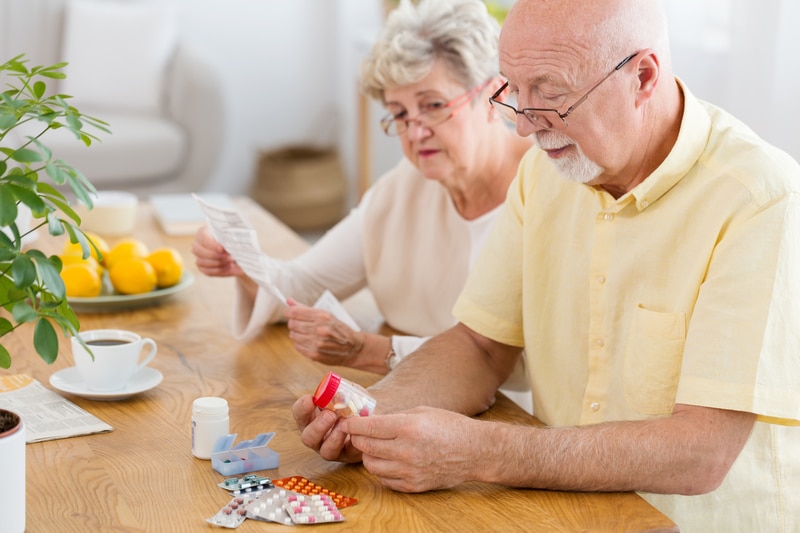
(ID 118793529 © Katarzyna Bialasiewicz | Dreamstime.com)
Gov. Tim Walz announced Wednesday that he is extending the state’s “Stay at Home” order until May 4. The order, which began on March 27 was originally scheduled to end this Friday, April 10. This order is completely understandable considering the apparent reduced risk of getting the COVID-19 helped by social distancing.
So, we will all have been obeying the order which is great but what if you are experiencing health issues not related to COVID-19? Are you putting off finding medical help? Do you have questions about your medications and do you have enough to last you until the end of the month? Have your symptoms changed or worsened?
Now is not the time to think “Oh, they’re too busy to see me” or “it’s not that bad, I can cope”, or “I don’t want to catch anything.” We have heard these comments at East Side Elders, and we have been telling people that if they are concerned, “to pick up the phone and call your doctor.”
Yes, health clinics are extremely busy helping those with the virus, but if you are having a medical emergency, you should call 911 or go to the emergency room.
Here are some medical conditions that you should not ignore:
- Choking, or trouble breathing
- Persistent severe vomiting or diarrhea, coughing or throwing up blood
- Passing out, fainting or experiencing seizures.
- Cardiac arrest or stopped breathing or severe chest pain or pressure
- Sudden weakness on one side of the body
- Broken bones, especially if pushing through the skin
- Deep wounds or severe burns
- Heavy bleeding
- Severe allergic reaction with swelling and trouble breathing
- Accidental poisoning or overdose
- Electrical shock
- Head injury with fainting or confusion or a neck or spine injury with a loss of feeling or movement
- Suicidal thoughts and intentions
If you do go to the ER, and you are showing signs of the virus, expect to be tested for COVID-19 before you are allowed into the clinic. Some clinics have put up tents outside ER entrances to screen for the virus and to isolate those testing positive.
If you had planned a surgery or a medical procedure during the “Stay At Home” period, it most likely will have been postponed. These procedures are often referred to as “elective” and can wait until after the COVID-19 pandemic is controlled. Examples of elective surgeries include cataracts, endoscopies and colonoscopies, as well as orthopedic surgery, such as a hip replacement.
Telehealth
If your medical condition does not need immediate attention, for example, you are running out of a medication or if you need to talk to someone about controlling your blood sugar, you don’t have to leave the safety of your home to receive care. All you need to do is call Telehealth to speak to a healthcare professional.
Telehealth lines are answered by certified and licensed practitioners, and they can provide medical advice, make diagnoses of certain conditions, like a bladder infection or UTI, and prescribe certain medications – all without having to see you face to face. Telehealth or Telemedicine services are available through your healthcare insurance, including Medicaid and Medicare, but check your policy to be sure specifics such as how many services you are eligible to receive in a week or month. You will also need to check your healthcare policy for the Telehealth phone number.
Mental and Emotional Wellbeing
Not all health emergencies are physical. Feelings of fear, anxiety, sadness and uncertainty are normal during the COVID-19 pandemic and, if you, or someone you know is in emotional distress, help is a phone call away. The Minnesota Warmline provides a safe and confidential phone resource and can be reached at (651) 288-0400. National Suicide Prevention Lifeline, (1-800-273-8255) is a 24-hour, 7 days a week phone line where trained crisis workers are on hand to talk.
So, be smart. Look after yourself and your loved ones, and speak to a healthcare professional if you have any questions or concerns about how you are feeling. After all, this pandemic won’t last forever, and we are looking forward to seeing you all again very soon.
Take care of yourself and one another.
“Your body will be around a lot longer than that expensive handbag. Invest in yourself.” Anonymous
